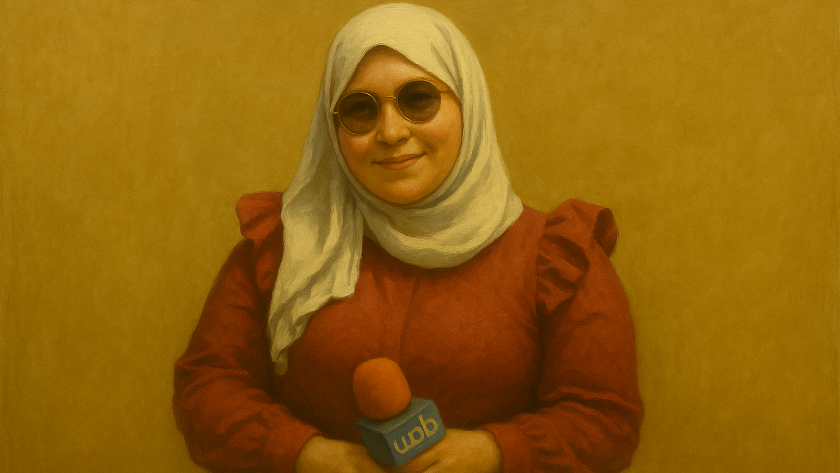
In a small room somewhere between Ramallah and the cloud, Nidaa Bassoumi is waging a war most people can’t see.
It’s not a war of bullets or barricades. It’s a war fought in comment sections, on livestreams, and within the mysterious innards of machine-learning algorithms. In this war, words disappear before they're read. Photos vanish mid-scroll. Videos of bombed buildings are flagged as 'violence and incitement'. And truth itself is throttled by content moderation policies written oceans away.
Nidaa is the Media Coordinator for Sada Social, a Palestinian digital rights organization that tracks and challenges the censorship of Palestinian voices on global platforms like Facebook, Instagram, TikTok, and YouTube. She’s part investigator, part strategist, part therapist—working with journalists, activists, and ordinary users whose content has been shadow banned, removed, or simply rendered invisible.
“We’re not just documenting violations,” she says. “We’re documenting erasure.”
In another universe, Nidaa might be working as a full-time journalist—she started out that way. But reality in Palestine bends trajectories.
“I didn’t choose this path exactly,” she reflects. “It chose me. Because when you’re Palestinian, digital rights are not abstract. They are political. Personal.”
Early on, she became fascinated by the intersection between digital security and digital expression. It wasn’t just about encryption or password hygiene. It was about survival.
“People were livestreaming from Gaza and disappearing from the internet the next day. Their content—gone. Their accounts—closed. And then their voices—forgotten.”
That’s when she realised the platforms weren’t just social—they were sovereign. They had the power to determine what was visible and what was not. And increasingly, what was Palestinian wasn’t making the cut.
The evidence is damning. According to Sada Social’s monitoring, hundreds of digital rights violations against Palestinian content occur every month—most commonly on Meta platforms. Facebook and Instagram are the biggest culprits, Bassoumi says, though TikTok is increasingly problematic. The violations range from suspending news accounts to blocking innocuous posts. There’s no pattern. Or maybe, she suggests, the pattern is simply being Palestinian.
At first, Sada Social tried to talk to the platforms. They documented cases, wrote reports, flagged inconsistencies. The response? Shrugs. They said decisions were made automatically, or by third-party moderators. It wasn’t their fault.
Did she believe them? She pauses. Partly, yes. Platforms have outsourced responsibility to a machine that’s not trained to understand us. But also—how convenient.
It’s not just the algorithm. It’s Israeli government pressure, too. Their complaints carry weight, and they know how to push the platforms into silence. What’s flagged as dangerous isn’t determined in Palo Alto alone—it’s shaped by geopolitics. In this sense, Sada Social isn’t just confronting opaque machines. It’s confronting policy, diplomacy, and a state with a vested interest in shaping the narrative.
“When we met with Facebook, they told us: it’s not us, it’s the government,” Nidaa says.
And yet, the group kept going. Every takedown became a data point. Every censorship incident became a bullet in a report. Slowly, a community formed—of journalists who had been silenced, of users who had been flagged, of people who knew what it felt like to be filtered out of history.
“We don’t just write reports,” Bassoumi says. “We help people understand what’s happening to them. Why their posts aren’t reaching anyone. Why their accounts have vanished. Why the algorithm seems allergic to their reality.”
It’s not just injustice. It’s trauma. One journalist, she recalls, stopped covering Gaza entirely because he feared getting banned.
“He said, ‘If I post about this again, I’ll lose my account.’ So he stopped. That’s self-censorship. That’s digital occupation.”
Still, Palestinians are adapting. In what can only be described as a kind of algorithmic resistance, users are learning to outsmart the platforms. They replace certain words with emojis. They blur key images. They refer to Israeli airstrikes with euphemisms or code—calling them 'fireworks' or 'big noise'. It’s a strange, almost Orwellian subversion: saying the unsayable by saying it slant.
But it shouldn’t have to be that way, Bassoumi insists. “Why should people code-switch just to tell the truth?”
Despite the odds, Sada Social has grown in visibility and influence. Their reports are widely shared. Their collaborations with humanitarian groups have expanded. And while their relationship with tech companies remains fraught, they have carved out enough recognition to at least be heard—even if they are rarely listened to.
A significant early boost came from the EED, whose initial support helped Sada Social move from a loose grassroots effort to a more structured and resilient organization. With EED’s backing, the team was able to professionalise its monitoring of violations, launch awareness campaigns, and train young digital activists. Now, with continued EED support, they’re strengthening their social media presence and building new partnerships to sustain their fight for digital dignity.
When asked whether she’s hopeful that truth will win, Bassoumi doesn’t flinch. “No,” she says quietly. “I’m not hopeful. This is not a fair battle.” Still, she keeps fighting. Because somewhere in the balance between despair and defiance, there is duty.
Asked who her personal hero is, she says: “My father.” A quiet man, thoughtful and principled, who taught her to believe in justice even when it seems far away. And if she could have a superpower? “Invisibility. To see what people are really thinking. To see the truth behind the mask.”
That, in the end, is what she’s chasing: not just freedom of speech, but freedom of presence—of not being deleted.
In an age where algorithms act as arbiters of reality, Nidaa Bassoumi and Sada Social are doing something radical: they are insisting that Palestinian lives—and Palestinian truths—deserve to exist online. To be seen. To be remembered.
Because the opposite of censorship is not just visibility. It’s dignity.
This article reflects the views of the grantees featured and does not necessarily represent the official opinion of the EED.